|
For the next few months, we’ll start each newsletter with a message from BioQUEST staff and volunteers--a way for the QUBES community to get to know us, if you don’t already! If you’re coming across this newsletter on the QUBES website, you can subscribe here to keep in touch!
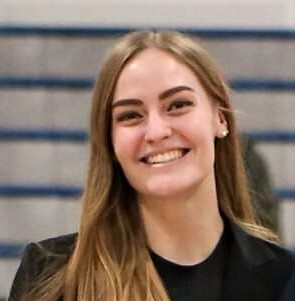
Hello everybody!
As BioQUEST's new workshop coordinator, I am excited to help bring the 2022 Biology and Mathematics Educators (BIOME) to a home or school office near you! As the third virtual BIOME Institute, "Sparking IDEAS: Inclusive, Diverse, Equitable, and Accessible Communities in STEM Classrooms”, takes shape, it’s clear that the schedule has been purposefully structured with the BIOME Planning Committee’s ample experience with online learning communities at its core. With a mix of synchronous and asynchronous activities, participants will be delighted to find that they can incorporate this year’s BIOME into their regular schedules.
Virtual and conveniently designed, this year’s BIOME Institute will be hands-on and practical in application to get participants thinking about how to unlock students’ full potential. Building functional communities and networks with diverse knowledge and experiences is foundational to fostering inclusion, empowering students, and ultimately driving transformative scientific discovery and innovation.
Interested in learning more about how this year’s BIOME Institute will help you position yourself as a leader while also empowering students to guide their own learning? Want to hear about how participating in the BIOME can advance your groups’ goals? Then come discuss the BIOME during the March Community Conversation with me! I will look forward to meeting you there and at this year’s 2022 BIOME Institute! Applications for the July 18-29, 2022 BIOME Institute have just opened!
Sincerely,
Katrina Wells
In this newsletter:
BioQUEST News
Partner Corner
Introducing New Partners
We're so happy to welcome two new partners. Learn more and get in touch:
|
News and Opportunities
QUBES Corner
-
Did you know? You can restrict access to files to instructors only!
You may have noticed that some QUBES publications have a “Request Instructor Access” button and some files (like assessments and keys) that cannot be downloaded. You can request instructor access by logging into your QUBES account and providing a link to your professional web page. Once you are identified as an instructor, you will never see that button again (as long as you are logged in), and you will be able to download any file from any publication. You can see it in action in the “Building Biodiversity Datasets” resource. If you are publishing on QUBES you will see the option to make files instructor only when you add content.
-
20 open educational resources were published to the QUBES Library in February! Browse the new resources here.
-
Featured Resources
BioQUEST News
Introducing BIOME 2022
We are so excited to provide more details AND A LINK TO APPLY for our 2022 BIOME Institute:
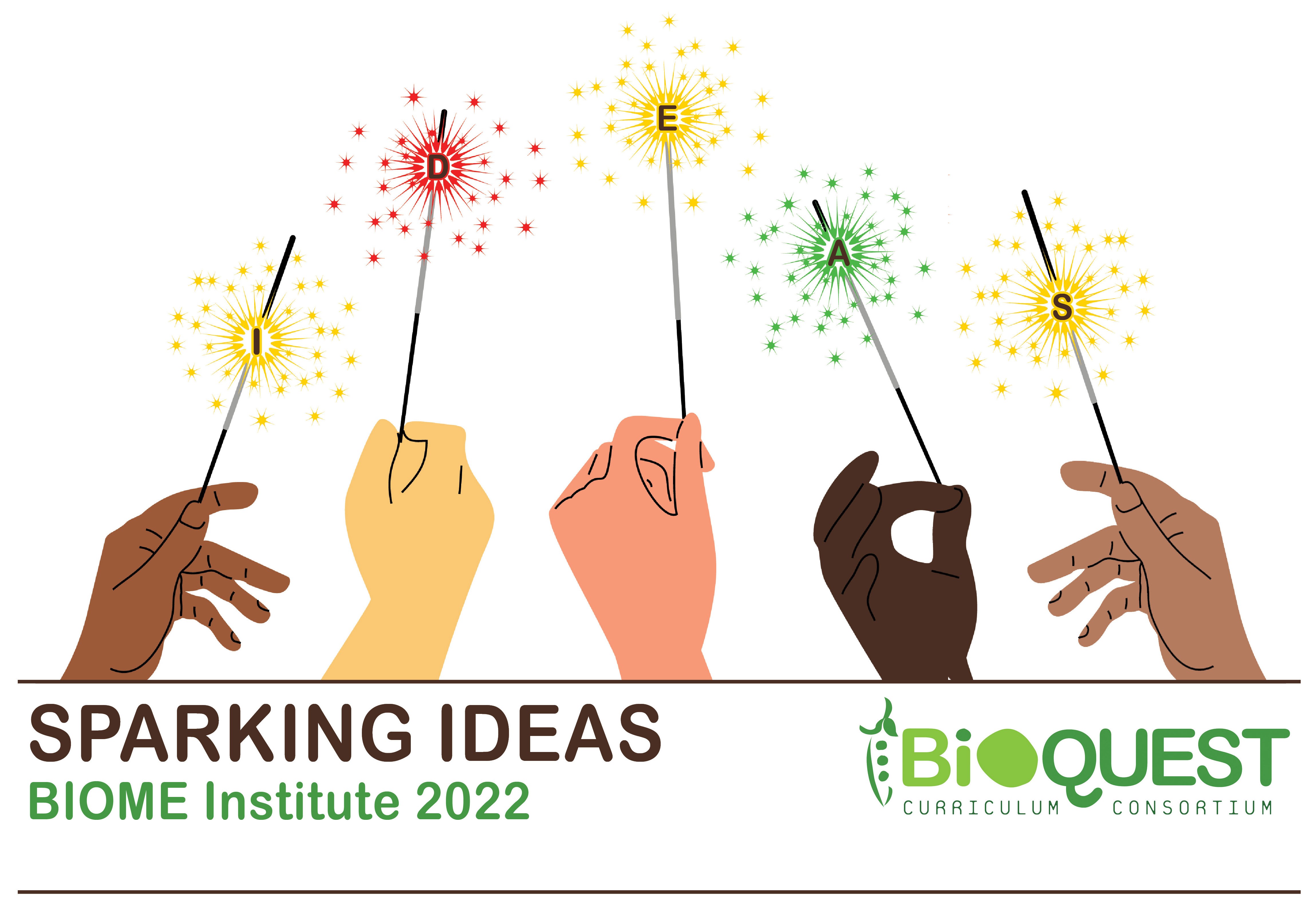
Sparking IDEAS: Inclusive, Diverse, Equitable, and Accessible Communities in STEM Classrooms
July 18 - 29, 2022
July 18-22 will be our workshop intensive week, with synchronous sessions, while the following week will provide time to connect asynchronously and form fall working groups.
Application and deadlines:
Early bird deadline is April 10
Final deadline is May 10
Keynotes:
Ruthmae Sears, Associate Professor at University of South Florida
Mica Estrada, Associate Professor at University of California, San Francisco
More on our theme:
Creating equitable, inclusive learning environments for all of our students is paramount for empowering them as thinkers, scientists, and citizens, and for advancing scientific discovery and innovation. How do we foster a sense of belonging in each student and a sense of community for the class as a whole? How do we reduce barriers to participation and engage all perspectives? How do we position ourselves as leaders but also empower students to guide their own learning? In turn, what strategies for fostering inclusion and equity carry from the classroom into our professional networks?
The BioQUEST community, through the 2022 BIOME Institute, will aim to support faculty in building a sense of community and belonging within their classrooms and groups with the goal of creating networks and partnerships founded on mutual trust, respect, and open collaboration between students and educational leaders. BioQUEST has been a leader in STEM education reform for the past 35 years, and this year we will continue to grow our community through conversations focused on shifting the relationship between instructors and students, reframing instructional practice, and improving all student outcomes and feelings of belonging in STEM.
Stay tuned to this newsletter for updates on our keynotes, workshop offerings, and more!
BioQUEST Webinars are now Community Conversations!
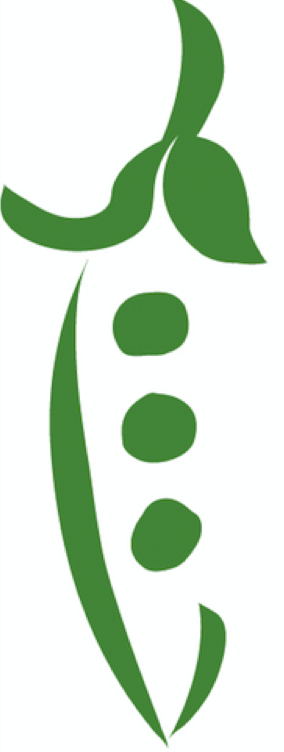
We’ve renamed our webinars to better reflect what these sessions are–a chance to come together, to briefly learn about the topic, and to have conversations about what you are working on and how we can help. Visit our webpage to see the presentations at the start of past sessions.
Please join us for our next Community Conversation on February 24!
BioQUEST Community Conversation: How Partner Groups Can Participate in and Benefit from the BIOME Institute
March 24, 4:00 PM ET
In this session, BioQUEST staff will give a short presentation about how our partner groups can participate in the BIOME Institute and how that participation can benefit your group. We’ll hear from past participants about their experiences and advice. We’ll also discuss our community goals for BIOME 2022, the theme of which is IDEAS (Inclusion, Diversity, Equity, Accessibility in STEM Classrooms).
Register for the session here.
Visit our Office Hours and Community Conversations page for recorded sessions.
Share Your BioQUEST Story: 35th Anniversary Celebrations
As many of you may know, BioQUEST is celebrating its 35th anniversary this year (we'll be 36 in June!). As part of the celebration, we're inviting our community to share BioQUEST stories--we're hoping these stories can express what the organization has meant to you and your career and are a chance to celebrate the amazing colleagues and collaborations that have come out of your work with BQ. These stories will be shared on a 35th Anniversary page on our website, in a forum (where others can comment and connect), and may be used in marketing for our next BIOME (!)
We've created a form for sharing stories here, or feel free to send something to Caitlin directly.
You can also share a BQ photo here or send photos to Caitlin.
Last thing! We're also trying to fill in our BioQUEST timeline and could use your help in adding important milestones throughout our 35-year history.
Thank you for your input!
Featured Publications
We are so proud of the amazing scholarly work that is coming out of our community. Congratulations to the authors and thank you for your work.
|
Applied and Computational Mathematics, February 2022
"A Quantitative Reasoning Framework and the Importance of Quantitative Modeling in Biology"
Mayes, R., Owens, D., Dauer, J., and Rittschof, K
Are you interested in applied education research about engaging students in modeling tasks? These BioQUEST collaborators share an overview of their research and assessment tools for those who are ready to unpack what it means to reason quantitatively.
|
|
The Bulletin of the Ecological Society of America, January 2022
"Flexible and Inclusive Ecology Projects that Harness Collaboration and NEON-Enabled Science to Enhance Student Learning"
Stack Whitney, K., Heard, M. J., Anderson, L. J., Cooke, S., Garneau, D., Kilgore, J., Kolozsvary, M. B., Kuers, K., Lunch, C. K., McCay, T. S., and Parker, A. T.
What happens when you can’t teach face-to-face? Research goes online! Ecologists are going to want to check out this paper describing the project and the four teaching modules.
|
If you have published a paper related to your work with BioQUEST and/or the QUBES platform, please let us know (send the link to Caitlin)!
Partner News and Opportunities
Featured Partner: Biology through Art
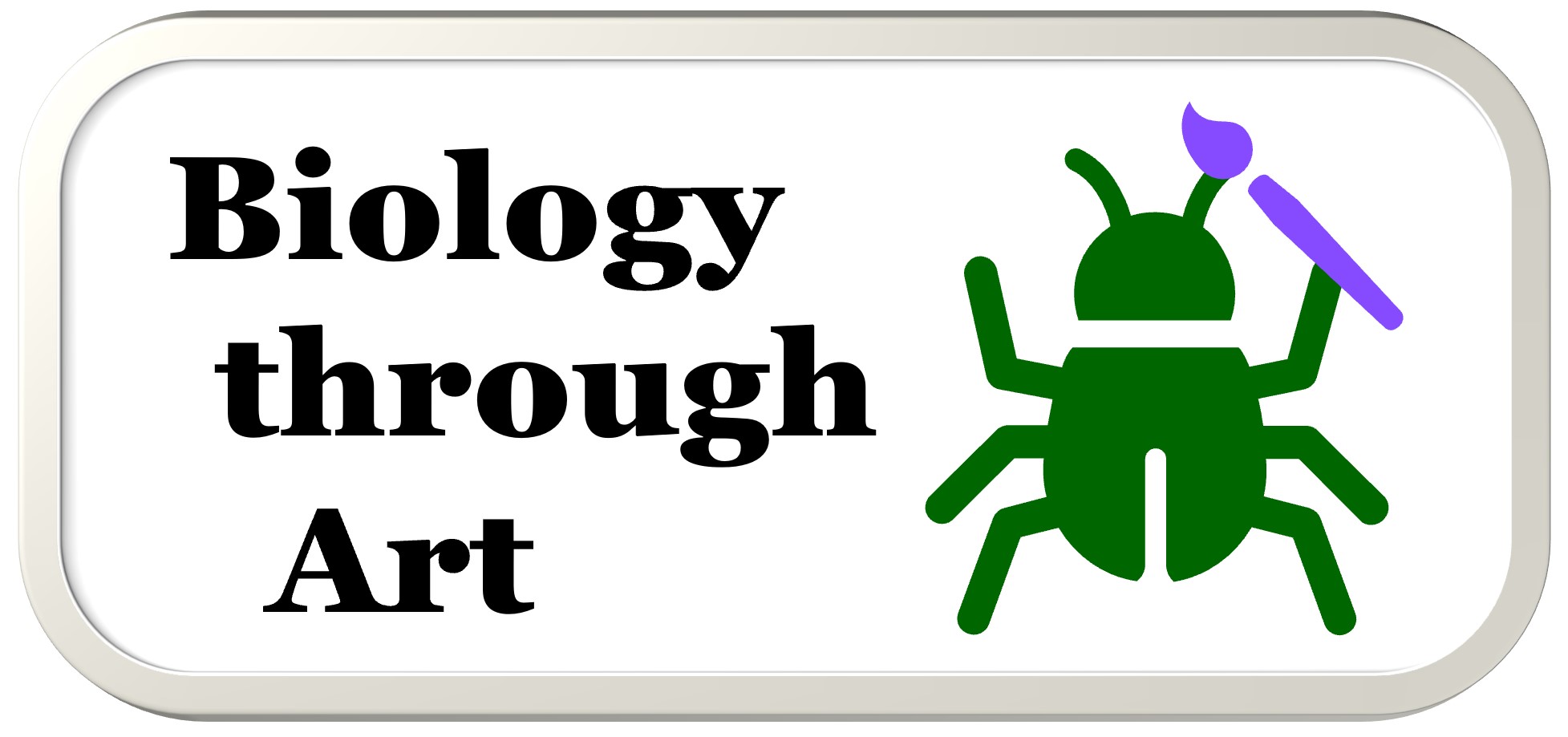 "Biology through art" is a collaborative network of biologists and artists that explores the integration of biology education and artistic expression. This approach builds on the demonstrated cognitive and academic benefits of art-enhanced instruction in biology courses to increase creativity, course engagement, and concept comprehension by diverse students -- biology majors and non-majors, as well as traditional and non-traditional students. "Biology through art" is additionally motivated by recent calls from national advisory bodies for the integration of education in the sciences with the arts and humanities, with an emphasis on the college graduate as a scientifically literate member of society. "Biology through art" is a collaborative network of biologists and artists that explores the integration of biology education and artistic expression. This approach builds on the demonstrated cognitive and academic benefits of art-enhanced instruction in biology courses to increase creativity, course engagement, and concept comprehension by diverse students -- biology majors and non-majors, as well as traditional and non-traditional students. "Biology through art" is additionally motivated by recent calls from national advisory bodies for the integration of education in the sciences with the arts and humanities, with an emphasis on the college graduate as a scientifically literate member of society.
How can you get involved?
Biologists and artists interested in this approach can email the project's organizer Mike Maxwell.
Other ways to connect:
Biology through Art website - join the group!
Biology through Art events page
Facebook / Twitter
Featured Partner: OCELOTS
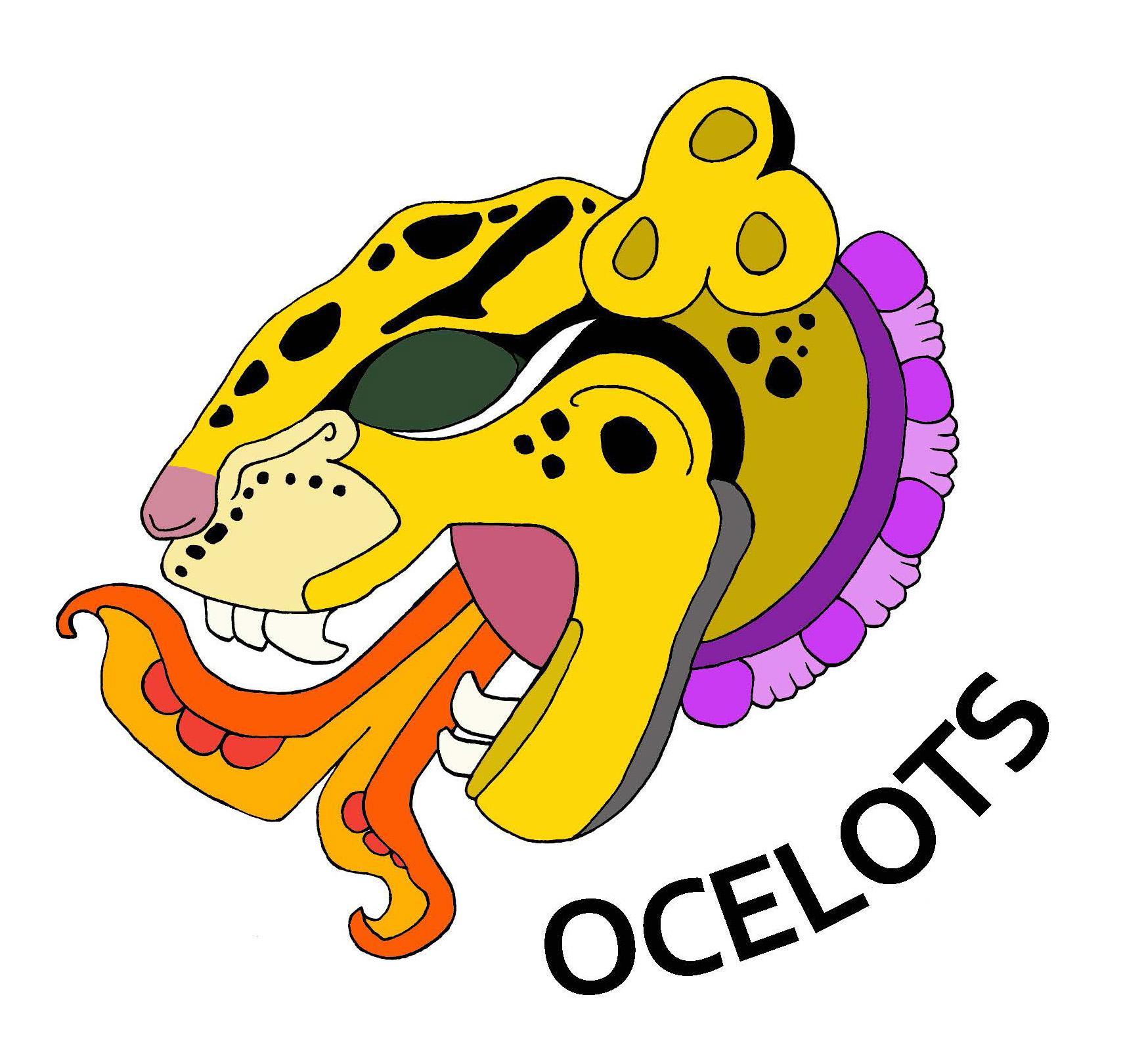 The OCELOTS (Online Content for Experiential Learning of Tropical Systems) Network brings together tropical ecology researchers, active learning pedagogy specialists, software developers, and media specialists, with the vision of creating an open-access, online resource library of learning modules in tropical ecology. The goal of these modules is to spark excitement in undergraduate biology courses by broadening cultural and geographic perspectives, enhancing principle-based reasoning and quantitative skills in ecology, and changing the way that students learn biology. The OCELOTS (Online Content for Experiential Learning of Tropical Systems) Network brings together tropical ecology researchers, active learning pedagogy specialists, software developers, and media specialists, with the vision of creating an open-access, online resource library of learning modules in tropical ecology. The goal of these modules is to spark excitement in undergraduate biology courses by broadening cultural and geographic perspectives, enhancing principle-based reasoning and quantitative skills in ecology, and changing the way that students learn biology.
How can you get involved?
Learn more about the group and join!
OCELOTS is running a Faculty Mentoring Network this summer on adapting online modules in tropical ecology. Apply by April 1!
Connect with us on Twitter.
CourseSource seeks physics and astronomy teaching resources

We are excited to announce a new opportunity to share research-supported teaching resources for undergraduate physics and astronomy in a peer-reviewed journal. CourseSource Physics is a parallel publication along with the current CourseSource Biology journal, leveraging the online publishing platform that is already in place. Our current funding model allows us to make articles available online free of charge to both users and authors. CourseSource Physics supports developers by providing a venue to share resources with a broad audience. And because it is a peer-reviewed journal, publications in CourseSource can be listed on a CV for professional acknowledgement.
This journal sits among other similar journals like the American Journal of Physics and the Physics Teacher. CourseSource is different in several ways. We focus on publishing ready-to-use and field-tested teaching resources (searchable by numerous metadata, such as topic, audience, and course level) that practitioners can download and use directly along with guidance to support implementation. Additionally, many of the lesson articles published include direct evidence of effectiveness. Our articles detail the authors’ approach taken to teaching a lesson and how it helped meet the learning goals of the class. While some details about the outcomes or effectiveness of the lesson is required, the focus is primarily on the nuances of implementing the materials. We provide mechanisms for you to a) describe your approach, b) publish your materials, and c) collaborate with others who might be interested in your approach but for a different context (different in class size, type of students, teaching modality, etc.).
We hope you will consider contributing. Please check out our website for additional information.
We are also seeking reviewers and would greatly appreciate your expertise. You can register as a reviewer here.
Please email us if you have any questions!
RIOS Convenes Open Ed and Social Justice Learning Community
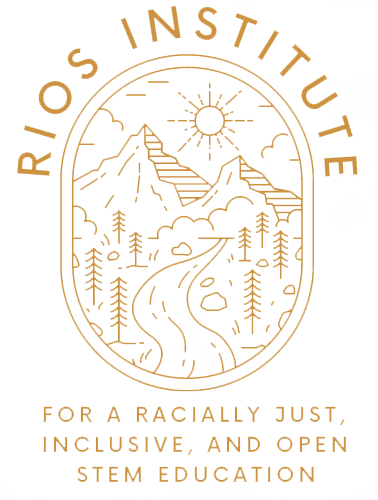 RIOS Open Ed Learning Community - Spring 2022: Exploring Open Education Practices and Pedagogy grounded in Social Justice to empower instructors and students in the learning environment RIOS Open Ed Learning Community - Spring 2022: Exploring Open Education Practices and Pedagogy grounded in Social Justice to empower instructors and students in the learning environment
Please join the RIOS Institute for a 6-session Learning Community series led by Dr. Carlos Goller (North Carolina State University) and Dr. Melanie Lenahan (Raritan Valley Community College) in which participants will engage in discussions, short readings and mini-workshops to explore basic tools for Open Education Practices. This learning community is designed for anyone interested in exploring, creating, and/or implementing a STEM curriculum through Open Science and Open Pedagogy. We encourage all to engage, including faculty, instructors, librarians, instructional technologists and designers, and organizational leaders, as well as policy makers and funders who want to learn more about the connections between open science and open education. Shared discussions and resources from these sessions will be used to build and create new curated materials to provide you success strategies as you move beyond this workshop.
The learning community will meet on Mondays at 4pm (EST) from March 14 - April 18 on Zoom. (Joining a week late is possible!).
If you are interested in participating, please complete our short registration survey.
More details can be found on our Learning Community page.
For questions about logistics, contact Kaitlin Bonner.
Join RIOS.
Deep Teaching Residency Recruits for 2022 Residency

The Deep Teaching Residency (DTR) is a year-long faculty development program in inclusive pedagogy that aims to meaningfully transform faculty mindsets and practices. ‘Deep Teaching’ is an inclusive pedagogical philosophy that seeks to engage faculty in a critical evaluation of how instructor self-awareness, students’ personal histories, and broad social structures impact the development of an equitable pedagogy.
Included in the year-long experience is a five-day immersive in-person workshop (contingent on health and safety measures related to COVID 19), where we come together as co-learners to examine, discuss, and apply inclusive teaching theories, models, and practices.
Applications are due March 18, 2022.
Learn more about the DTR and find the application.
See PI Bryan Dewsbury’s address to the NSITE Network for STEM Education Transformation on inclusive teaching.
Stipends Available for Implementing BCEENET CURES
 BCEENET will be supporting 10 new BCEENET CURE Implementers during the 2022-2023 academic year with a stipend of $1000 each. Preference will be given to educators at community colleges and minority-serving institutions, and early career educators are encouraged to apply. BCEENET will be supporting 10 new BCEENET CURE Implementers during the 2022-2023 academic year with a stipend of $1000 each. Preference will be given to educators at community colleges and minority-serving institutions, and early career educators are encouraged to apply.
If you are interested in becoming a new BCEENET implementer check out the full position description and apply today!
If you have any questions about this opportunity, reach out directly to the coordination team.
OCELOTS Offers Summer Faculty Mentoring Network
OCELOTS Summer 2022 FMN
Adapting an existing module
Applications Due: April 1, 2022 Apply now!
Are you interested in adapting an online, open-source module in tropical ecology that is based on authentic research? Apply now to join us for the Summer 2022 OCELOTS & BioQUEST/QUBES Faculty Mentoring Network (FMN).
Participants in this FMN will focus on adapting a specific module in tropical ecology for use in undergraduate life science courses. Accepted applicants will customize an existing OCELOTS module hosted on the Gala platform. While doing this, they will participate in weekly virtual sessions to collaborate with and support others in the network and receive mentoring.
For more information, visit our FMN page.
Biology Course Artwork on Exhibition
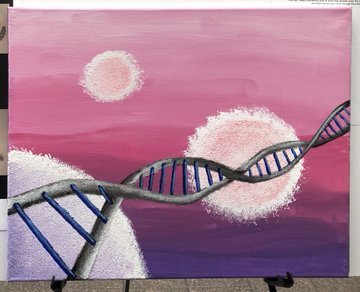 The San Diego Natural History Museum hosted an exhibition of student artwork from Dr. Michael Maxwell's Survey of Biology course. Maxwell is the PI for Biology through Art and professor at National University. The San Diego Natural History Museum hosted an exhibition of student artwork from Dr. Michael Maxwell's Survey of Biology course. Maxwell is the PI for Biology through Art and professor at National University.
Call for NABT 2022 Proposals Now Open
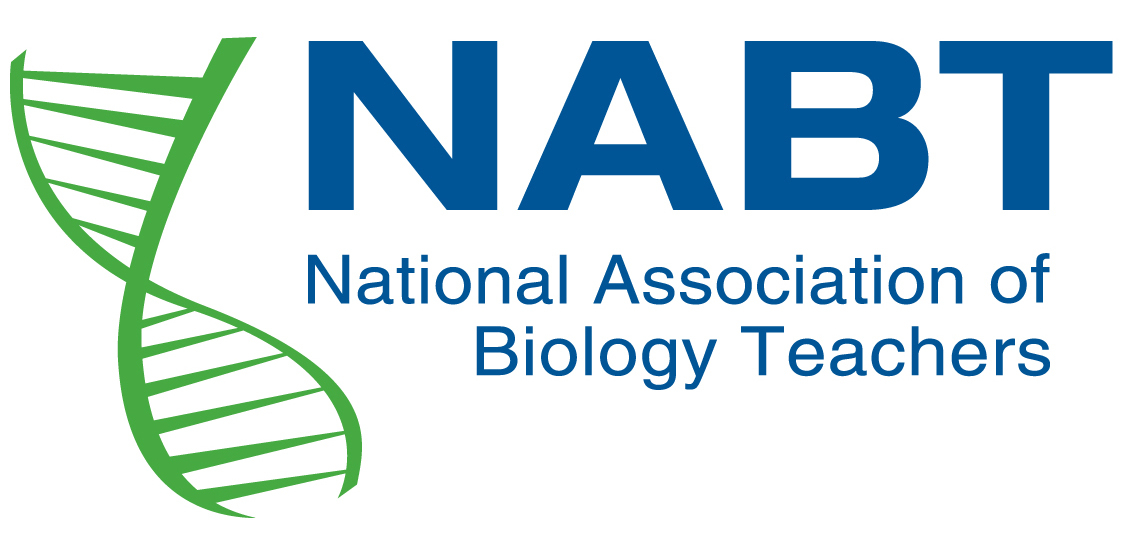 Do you have a great classroom strategy you want to share? Have you got a recommendation for a resource you can't teach without? Do you want to facilitate a discussion about that hot topic you keep seeing in your online PLC? Do you have a great classroom strategy you want to share? Have you got a recommendation for a resource you can't teach without? Do you want to facilitate a discussion about that hot topic you keep seeing in your online PLC?
NABT wants to highlight all of those ideas (and more!) during our in-person 2022 Professional Development Conference planned for November 10-13. We are now accepting proposals for education sessions using our online portal, and the deadline is 11:59 PM on Friday, April 1st.
Learn more about submitting your proposal!
Register for iEMBER’s June 2022 Conference
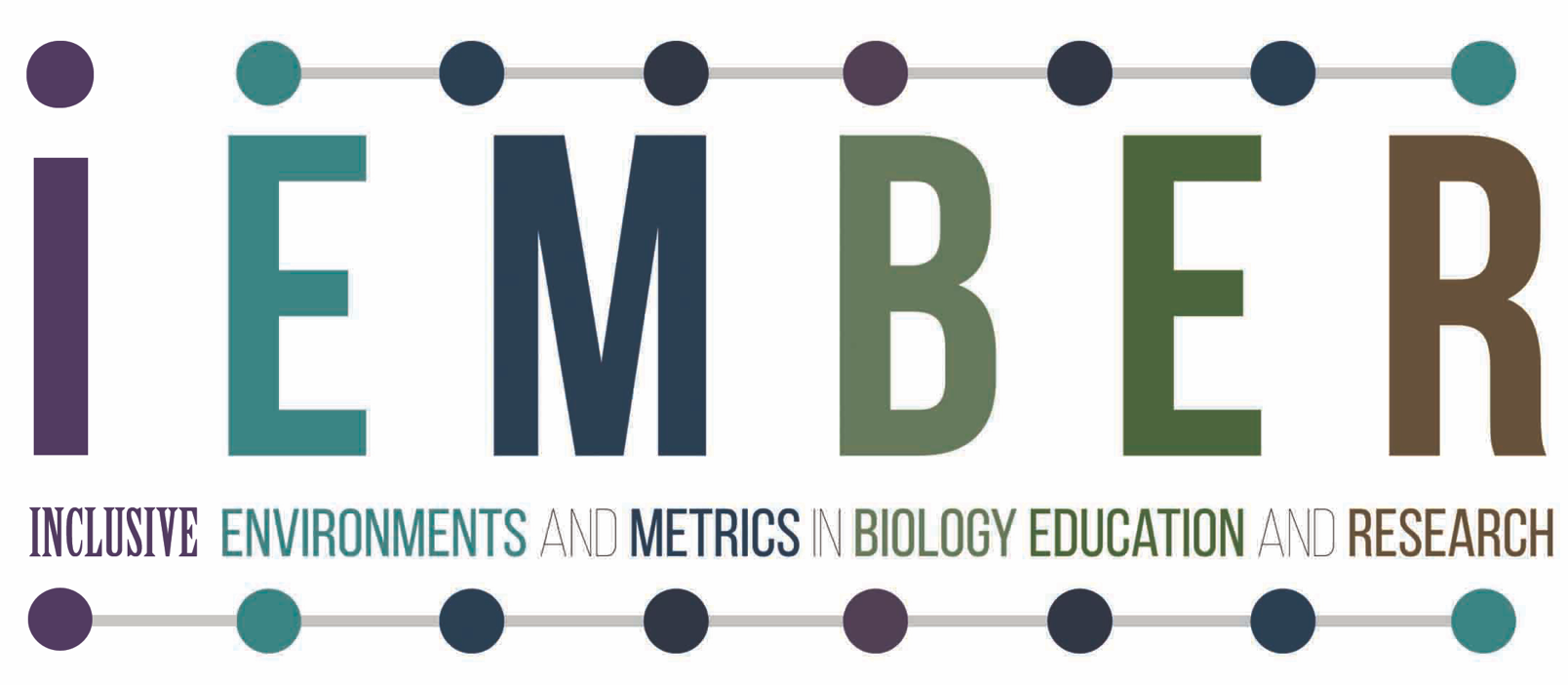
The Inclusive Environments and Metrics in Biology Education and Research (iEMBER.org- National Science Foundation Grant number 2010716) is excited to invite you to join them for the 2022 iEMBER Conference on June 27-29, 2022 in Billings, MT.
The conference theme is Visualizing and Taking Action on Authentic Inclusion. Session discussions include:
-
Bringing Your Authentic Self (Values and Biases) to Inclusion Work
-
Expanding Approaches to Inclusion
-
Real Talk: an open invitation to share experiences on implementing DEI
-
Structural Frameworks
Registration is now open!
BIT Program at NC State seeks two teaching postdocs
The Biotechnology Program is hiring TWO teaching postdoctoral scholars to develop molecular biology courses in cutting-edge areas of research. We are looking for researchers who are completing a postdoctoral position and are interested in education. The Postdoctoral Teaching Scholar will teach sections at the graduate and undergraduate levels of an existing course that covers manipulation and expression of recombinant DNA and CRISPR. The Scholar will also be expected to develop and implement a new laboratory course in a cutting-edge area of molecular biotechnology within their area of expertise.
The two positions are listed below:
https://jobs.ncsu.edu/postings/153451
https://jobs.ncsu.edu/postings/151460
Apply for the 2022 HITS Case Fellows Program

Become a HITS Case Fellow! Faculty and postdoctoral fellows devoted to the use of case studies and problem-based learning pedagogies can apply to become HITS Case Fellows.
The HITS network has the goal of training researchers and educators in data analysis and current trends in high-throughput (HT) experimentation and support the design and implementation of inquiry-based case studies using authentic HT data. The HITS network will train Case Fellows in the use of case studies based on HT data by using a yearly workshop.
Fellows receive:
-
Support to attend summer HITS workshops
-
Stipend
-
Exposure to different high-throughput (HT) approaches and graduate students, faculty, and postdoctoral fellows from different fields.
-
Opportunity to design novel case studies using authentic datasets that can be implemented in a variety of courses.
Case Fellows are expected to attend two summer workshops and participate in monthly virtual check-ins to continue making progress on their cases.
Find more information and the application here.
|